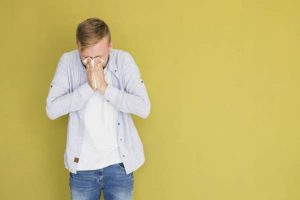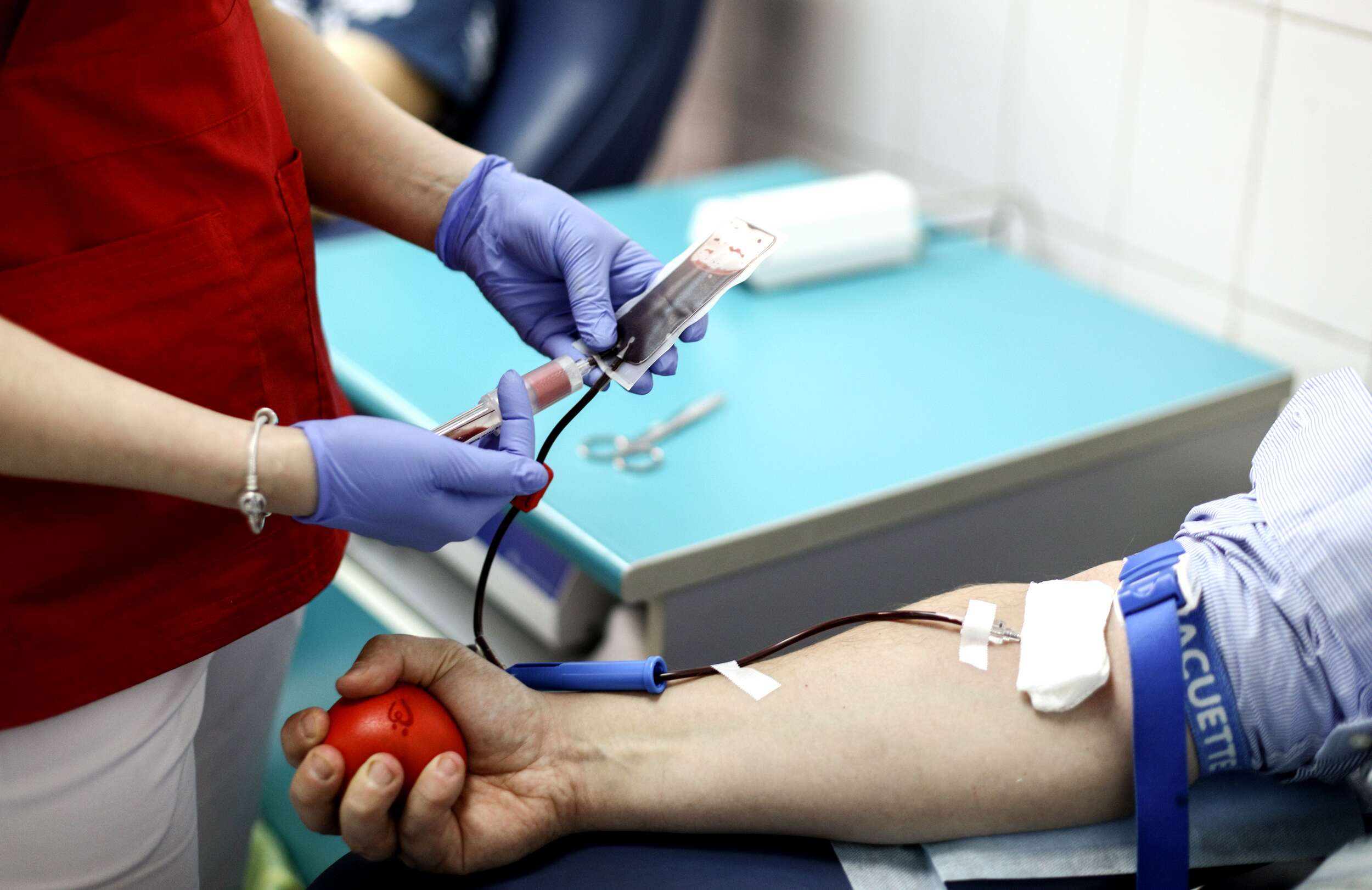Everything about the causes and symptoms of nasal polyps
Nasal polyps grow in the lining of the nasal airways or sinuses. They hang like grapes and are caused by chronic inflammation, asthma, recurrent infections, and allergies to drugs or immune disorders. Small nasal polyps may not cause symptoms, but larger tumors can block the nasal passages or cause breathing problems.
Anyone can get nasal polyps, but they are more common in adults. Medications can often shrink or eliminate this problem, but sometimes surgery is needed to remove them.
Key points to know about nasal polyps:
Nasal polyps are soft, swollen, and sac-like.
They are located inside the nose or sinuses.
They are a chronic disease.
It is an inflammation of the nasal cavity and sinuses.
Actual nasal polyps are not cancerous.
Some diseases are more common in people with this problem, including allergies to asthma and aspirin.
Medications and allergy prevention may help reduce your symptoms.
Surgery may also be needed to remove the polyp.
This problem sometimes causes rare and severe problems such as meningitis.

Signs and symptoms of chronic sinusitis with nasal polyps include:
- runny nose
- Decreased or lost sense of smell
- Facial pain or headache
- Pain in the maxillary teeth
- Feeling pressure on the forehead and face

When to see a doctor for nasal polyps?
See your doctor if symptoms persist for more than three days. The symptoms of chronic sinusitis and nasal polyps are similar to many other conditions, including the common cold.
If the following happens to you, call the emergency room:
Serious breathing problems
The symptoms suddenly get worse and worse
Dual vision decreased vision or limited ability to move the eyes
Severe swelling around the eyes
Severe headache with severe fever or inability to bend the head forward
Causes of nasal polyps:
Scientists still do not know what causes nasal polyps. It is unclear why some people develop chronic inflammation or why persistent inflammation causes polyps in some people and not in others.
Inflammation occurs in the mucous layer (mucous membrane) of the nose and sinuses.
There is evidence that people with polyps have different immune responses, which is another chemical sign in their mucous membranes.
This problem can form at any age but are more common in adults and middle-aged people. Nasal polyps can occur anywhere in the sinuses or nasal passages but most often appear in the area where the sinuses are near the eyes, nose, and cheekbones.
Risk factors for nasal polyps:
Any condition that causes chronic inflammation in the nasal passages or sinuses may increase nasal polyps’ risk.
Conditions associated with this problem include the following:
Asthma, a disease that causes inflammation and shortness of breath
Aspirin allergy may increase the incidence of nasal polyps in some people.
Allergic diseases, allergies to airborne fungi
Cystic fibrosis is a genetic disease that results in the production and secretion of complex, thick, viscous fluids.
Strauss-Churg syndrome is a rare disease that causes inflammation of blood vessels.
Family history can also play a role.
There is evidence that some genetic changes related to immune function cause nasal polyps.
Nasal polyp problems:
Nasal polyps can cause problems such as obstruction of normal airflow and fluid retention, and chronic inflammation in their growth.
Complications and problems of nasal polyps:
Sleep apnea cramps
In this situation, you are potentially short of breath.
Asthma
Chronic rhinosinusitis can make asthma worse.

Sinusitis infection
Nasal polyps can be prone to sinusitis.
Prevention of nasal polyps
Here are some tips to help you reduce your risk of developing this problem:
Allergy and asthma management
Follow your treatment tips for managing asthma and allergies. If your symptoms are well controlled, talk to your doctor about changing your treatment plan.
Avoid nasal stimuli
Avoid breathing in foods that cause inflammation of the nose and allergies to the nose and sinuses, tobacco smoke, chemical fumes, and dirty contaminants as much as possible.
Ways to prevent nasal polyps:
the health
Wash your hands regularly and thoroughly. This is one of the best ways to protect against bacterial and viral infections that cause inflammation of the nasal passages and sinuses.
Humidify your home
Use incense if the air in your house is dry. This may help moisturize your airways, improve sputum flow from the sinuses, and prevent blockage and inflammation.

Use a nasal wash or salt water to rinse your nasal passages
This may improve the flow of sputum and eliminate allergens and other irritants. If you rinse your nose, use cool distilled water.
Diagnosis of nasal polyps:
Your doctor will usually diagnose symptoms based on your answers to questions about symptoms, general examinations, and rhinoplasty.
Other diagnostic tests include the following:
Nasal endoscopy
This is a narrow tube with a magnifying glass or small camera that enables the doctor to perform a joint examination inside the nose and sinuses.
Imaging studies
Computed tomography images can help your doctor determine the size and location of polyps in the deep sinuses and assess the extent of inflammation.
Allergy tests
Your doctor may suggest skin tests to determine if allergies contribute to chronic inflammation.
If a skin test is not performed, your doctor may perform a blood test for specific antibodies to various allergens.
Cystic fibrosis tests
Suppose you have a child with polyps. In that case, he or she may be prescribed a cystic fibrosis test, an inherited condition that affects sputum, tears, sweat, saliva, and the gastrointestinal tract. The standard diagnostic test for cystic fibrosis is a non-invasive sweat test to determine a child’s sweating from a cold.
Nasal polyp treatment drugs:

Nasal corticosteroids
Your doctor will probably prescribe a nasal spray to reduce swelling. This treatment may reduce or eliminate polyps.
Nasal corticosteroids include Fluence (Fluence, Varamist), Budonocytes (Rhinocort), Flinsolide, Methamphetamine, Triamcinolone (Nasacort AQ), and Cislenoids.
Oral and injectable corticosteroids
If your nasal corticosteroids do not work, your doctor may prescribe oral corticosteroids such as prednisone alone or in combination with a nasal spray.
Because oral corticosteroids can have serious side effects, you will usually only take them for a limited time.
Other drugs
Your doctor may prescribe medication to treat conditions that cause chronic inflammation of the sinuses and nasal passages. These may include antihistamines to treat allergies and antibiotics to treat chronic or recurrent infections.
Aspirin is allergenic and may help some patients with nasal polyps.
Nasal polyp surgery:
If your treatments have not helped with this problem, you may need endoscopic surgery to remove the polyps and sinus problems.
In endoscopic surgery, a small tube with a magnifying glass or camera (endoscope) is inserted into the nostrils and guided through the sinus cavities. They use small tools to remove polyps and other obstructions that separate fluid flow from the sinuses.
Endoscopic surgery is usually performed on an outpatient basis. After surgery, a nasal spray should probably be used to prevent the recurrence of nasal polyps.

Nasal polyps in children:
Inflammation of the nose is the most common problem seen in children. This problem in children appears as inflammatory reactions to bacterial infections.
What are the possible problems and risks of nasal polyps?
Sometimes polyps cause problems, that sinusitis is a common problem. The infection may come back often and last a long time. If you have a bacterial infection, you may need to be treated with antibiotics.
This problem is usually dangerous infections such as:
- Infection of tissues around the brain and spinal cord (meningitis)
- Infection around the eyes
- Sinus bone infection
If you have one of these problems, you may need antibiotics. In sporadic cases, you may also require surgery.
Massive nasal polyps can also sometimes block the nasal passages during sleep. This is called obstructive sleep apnea.











